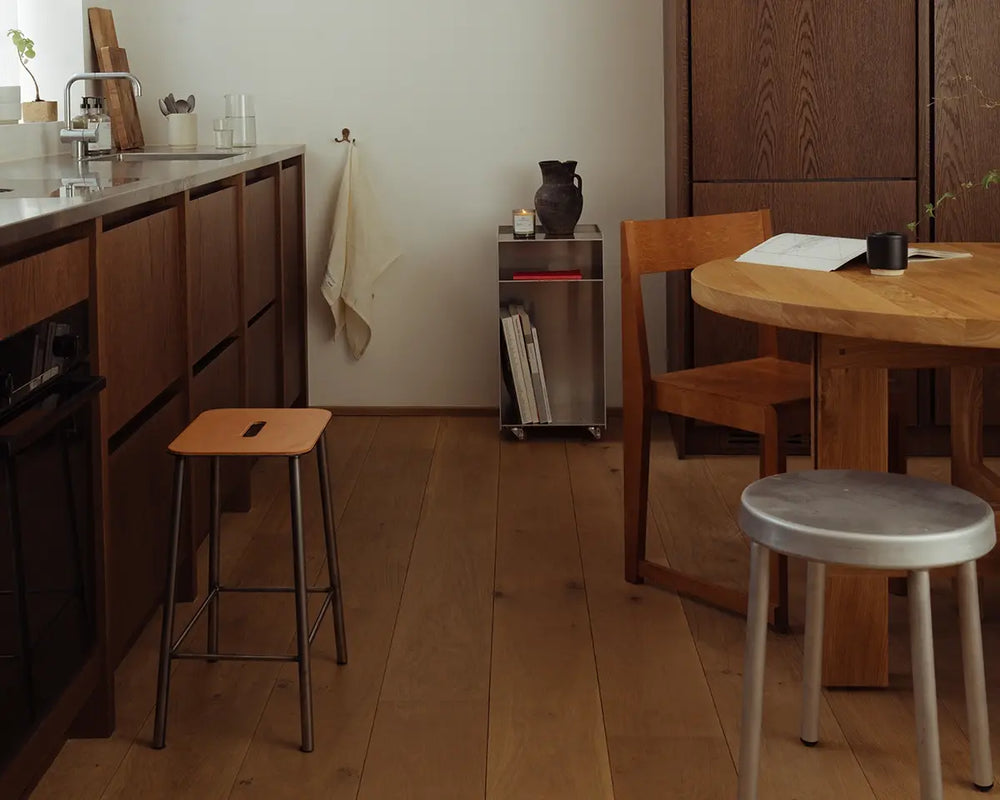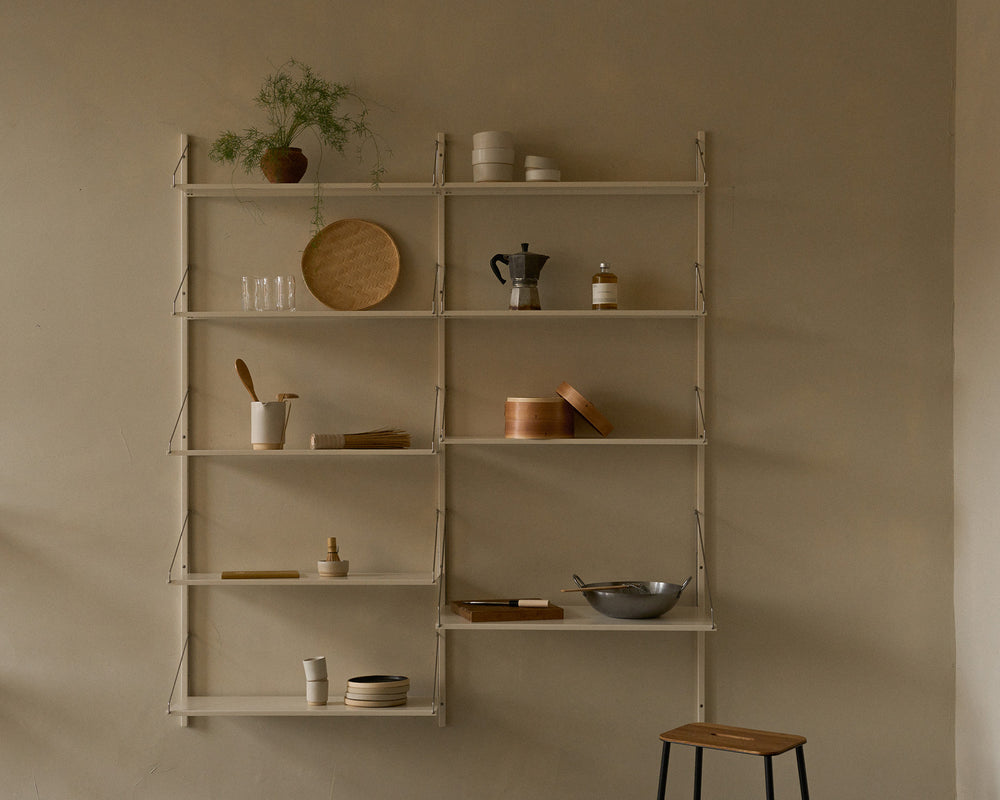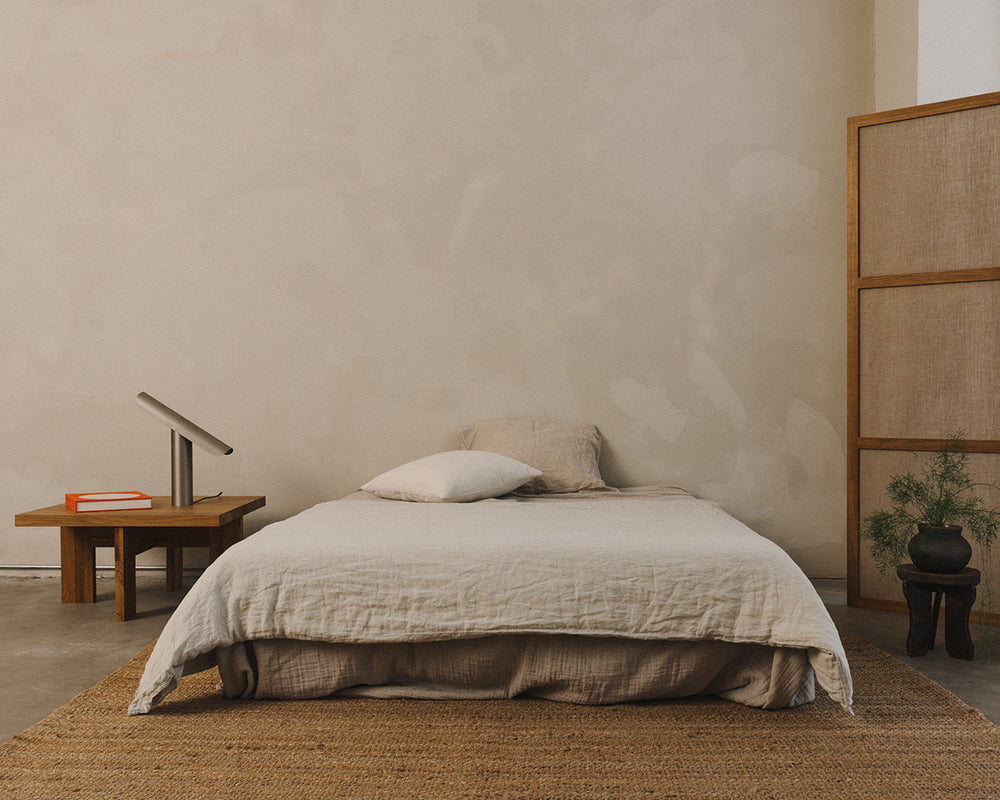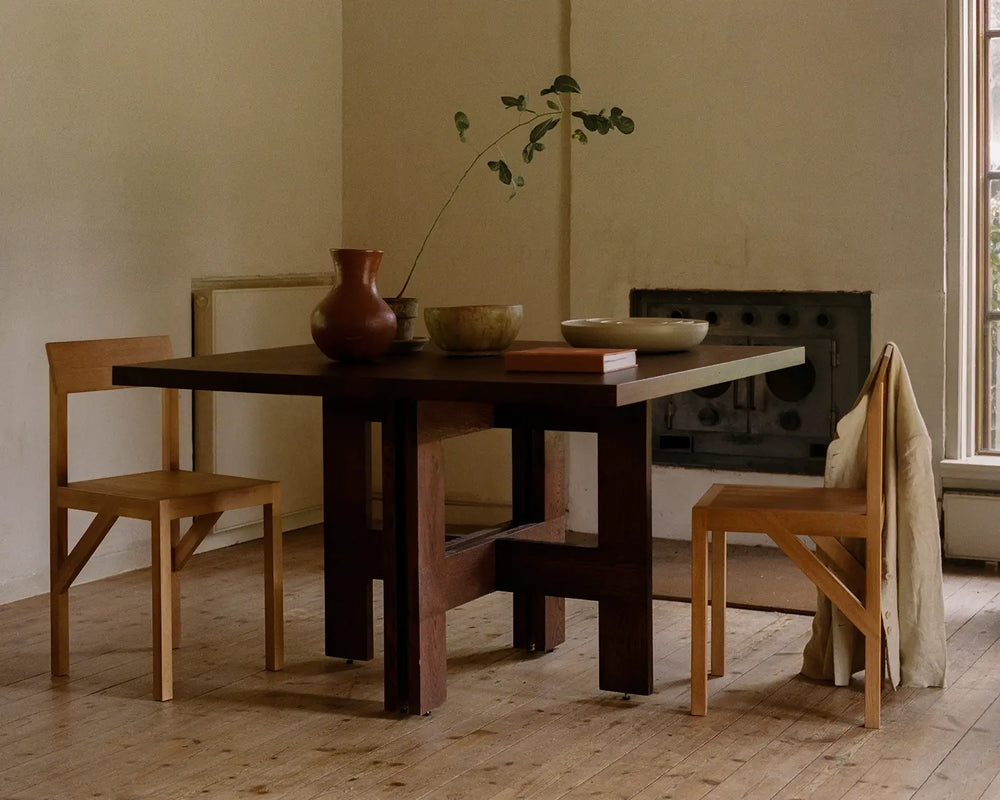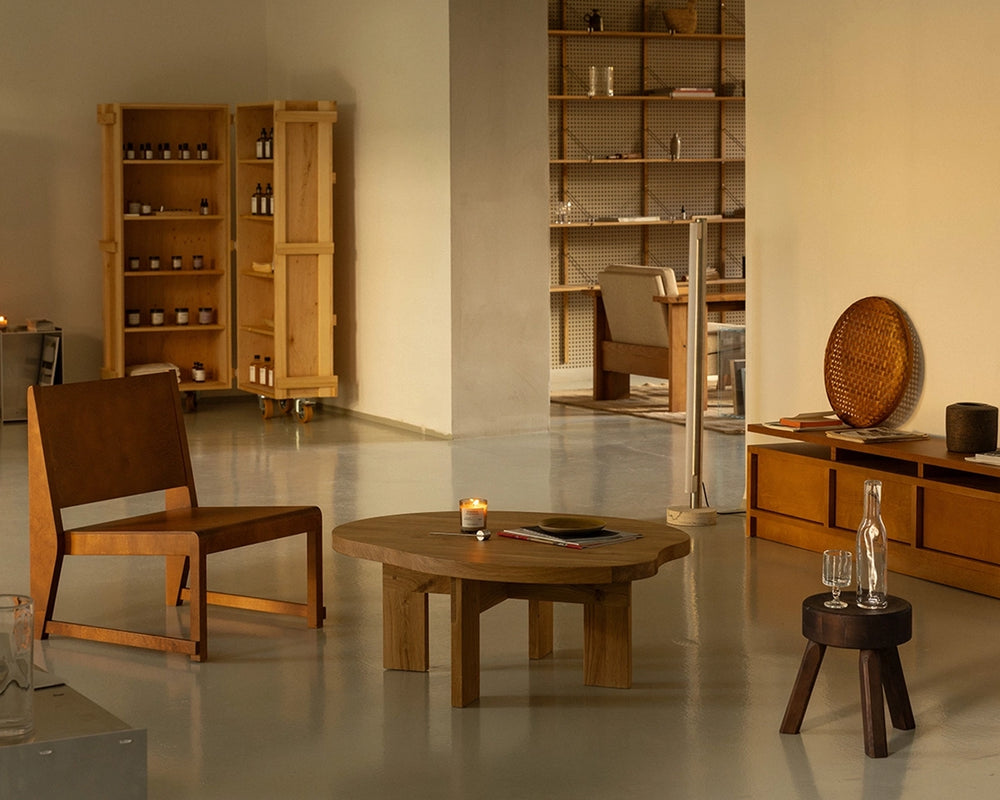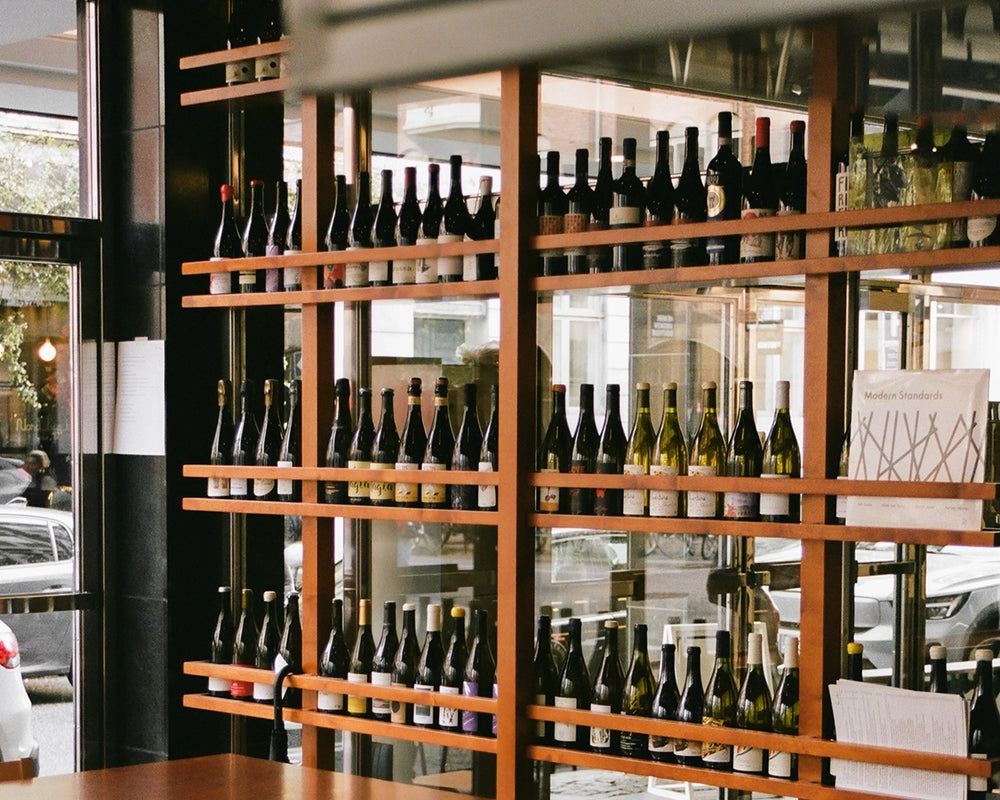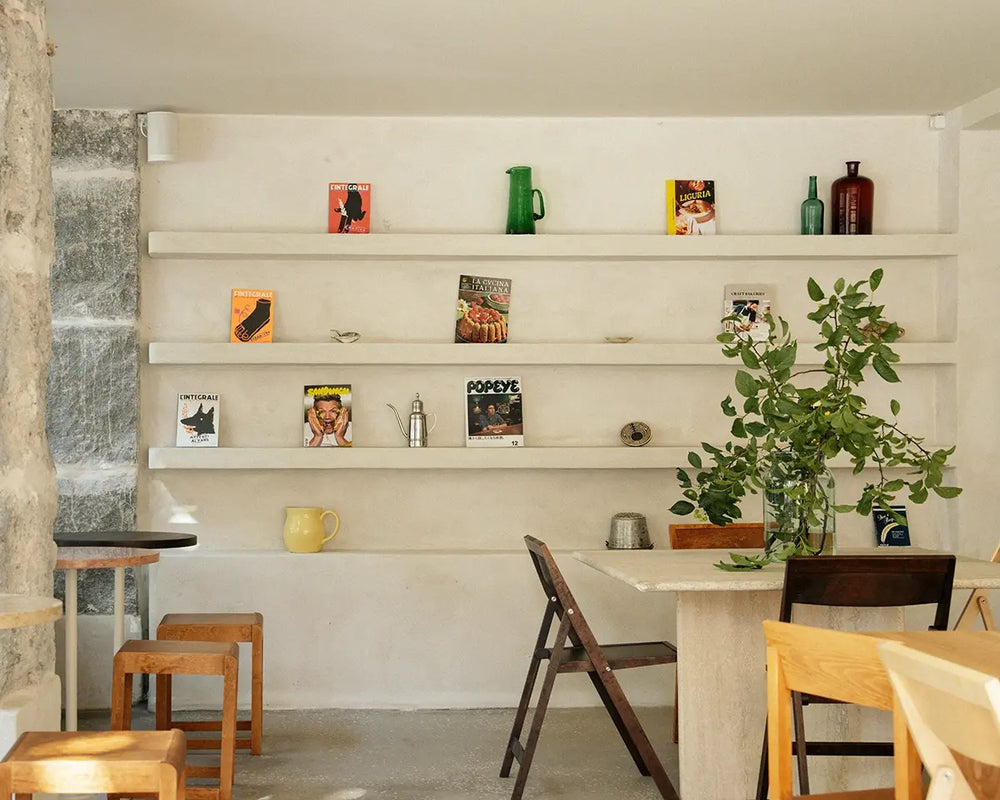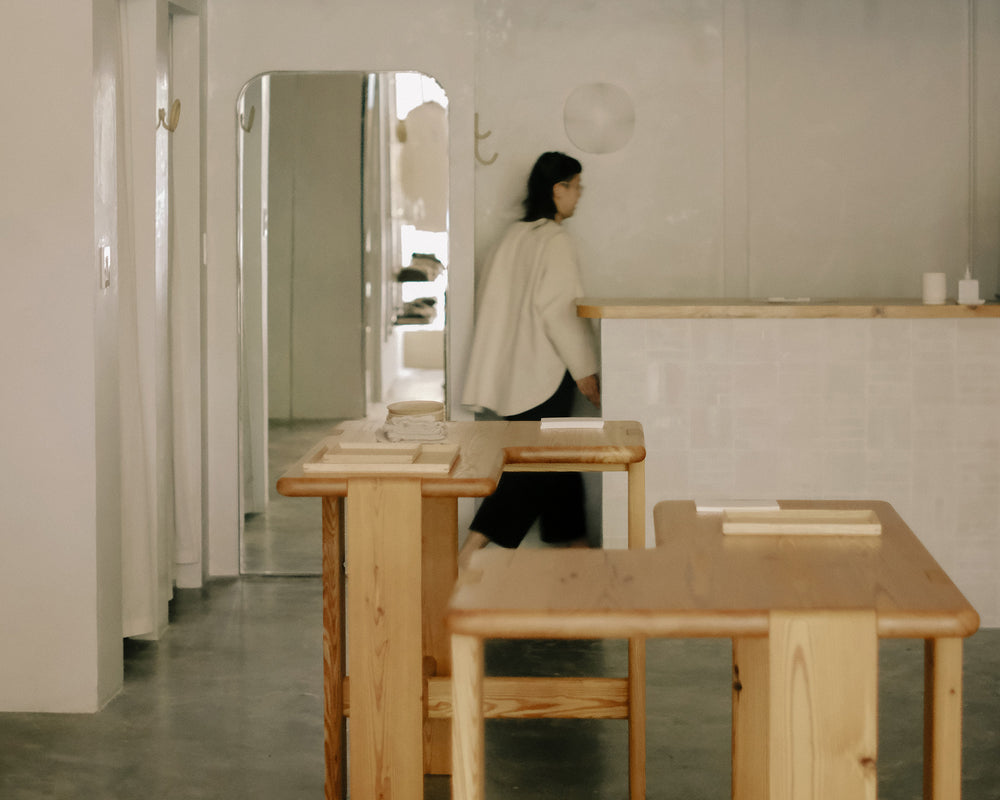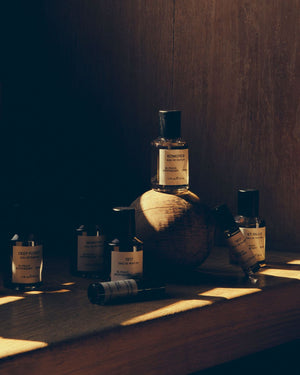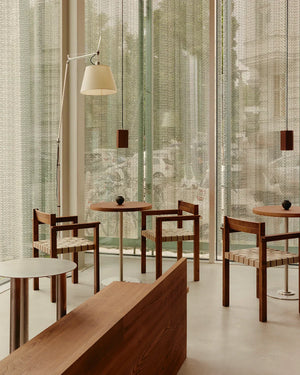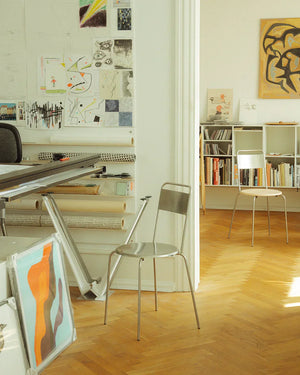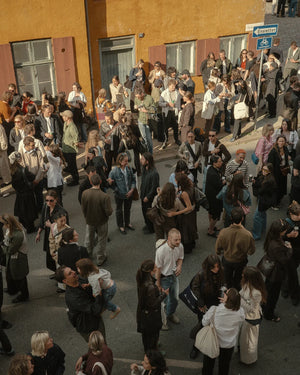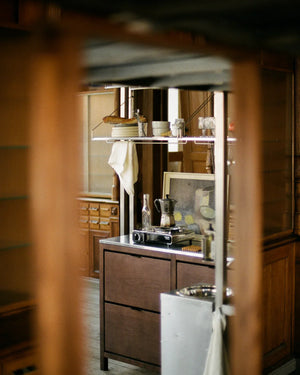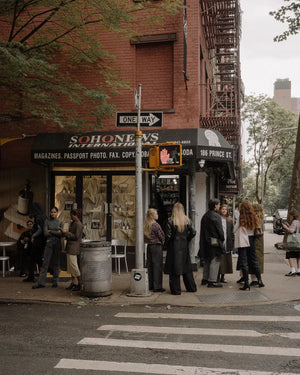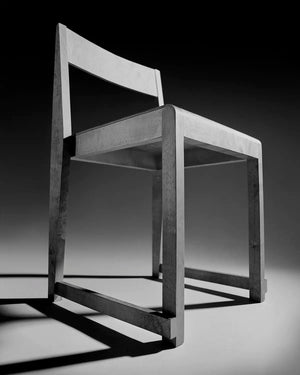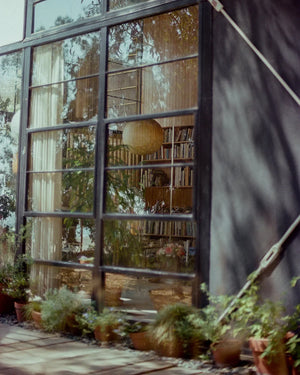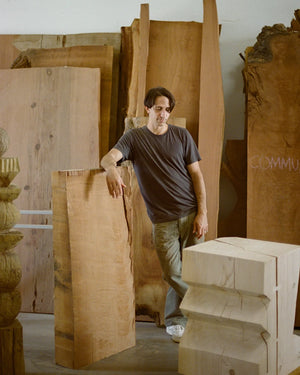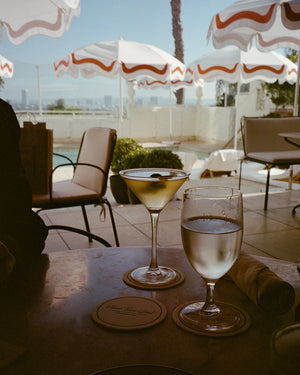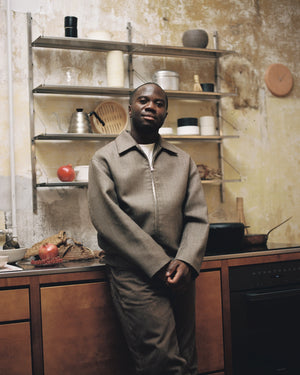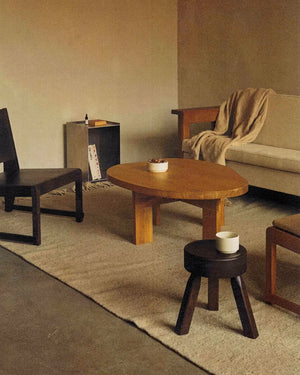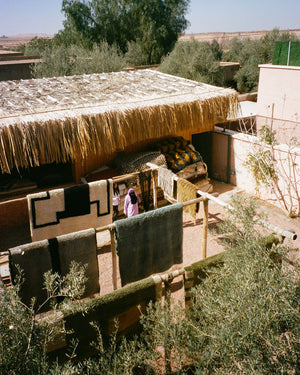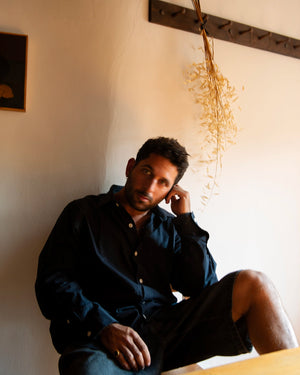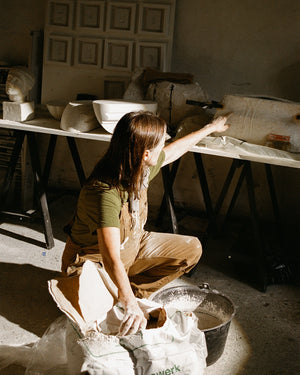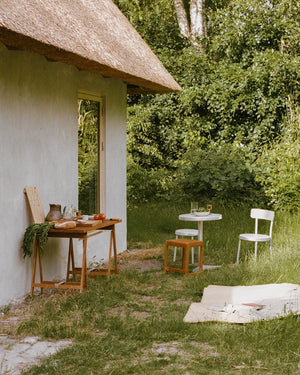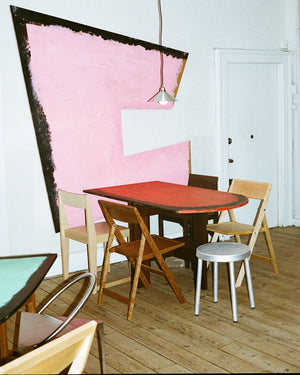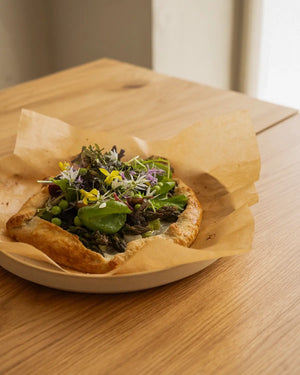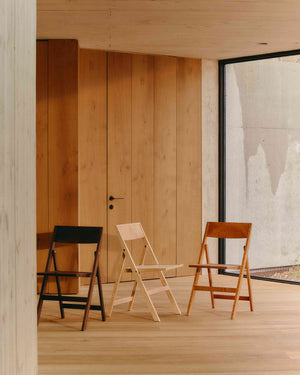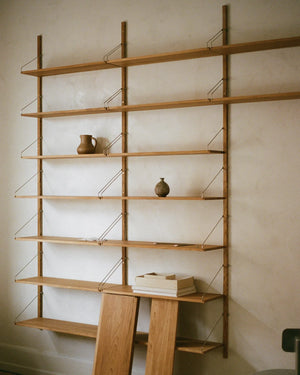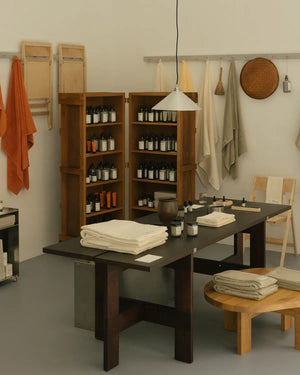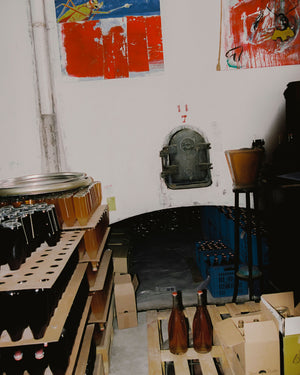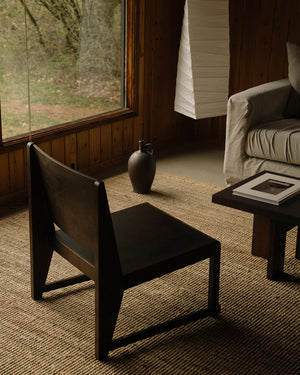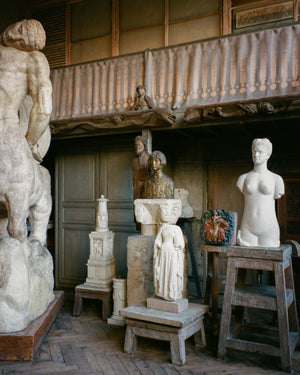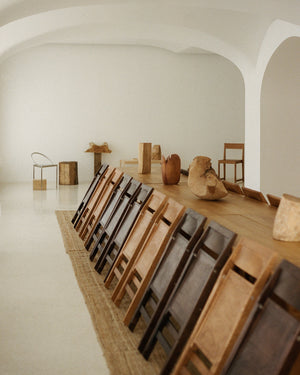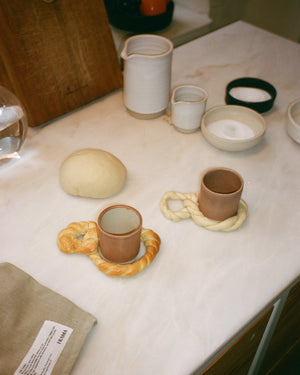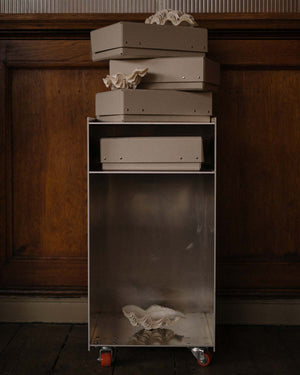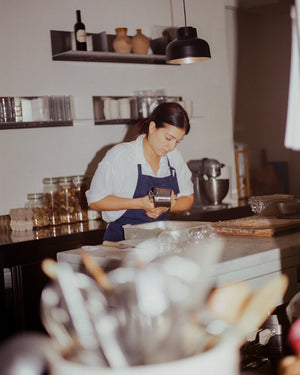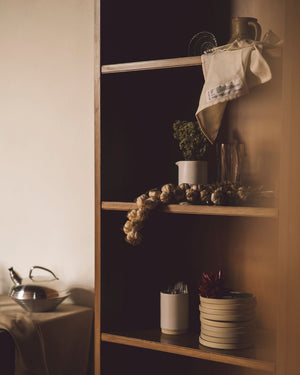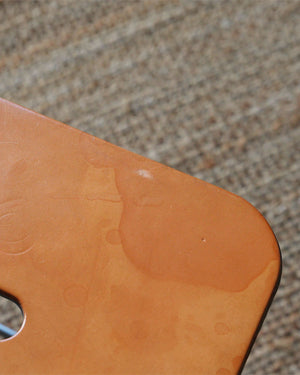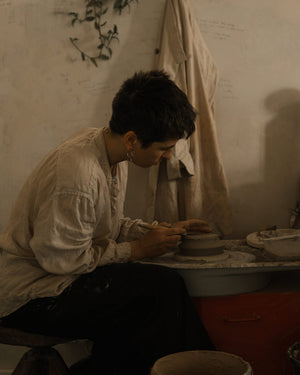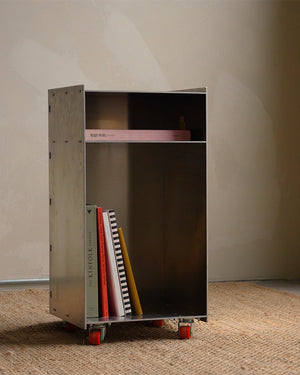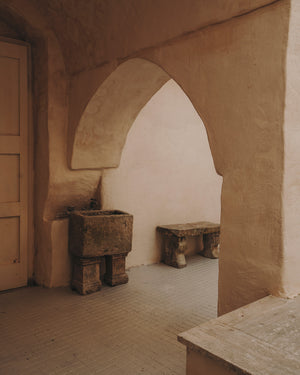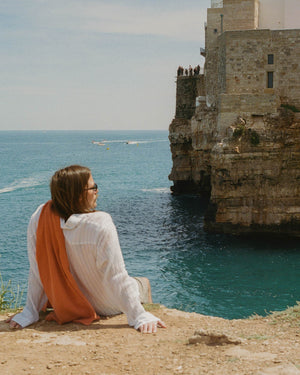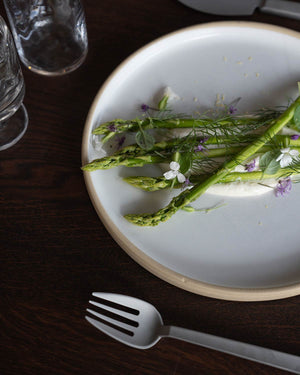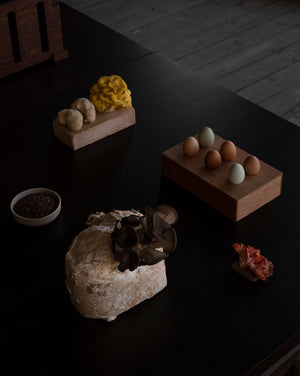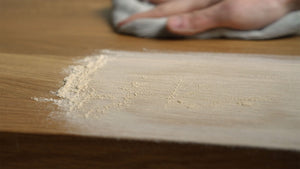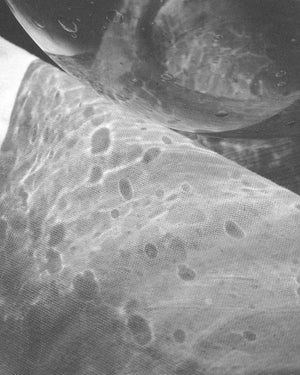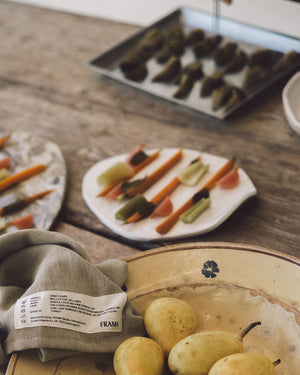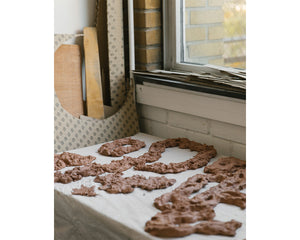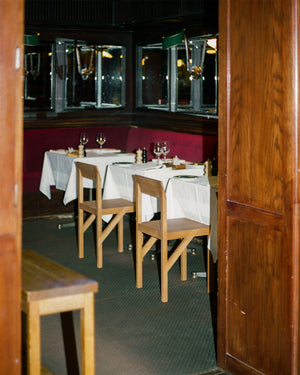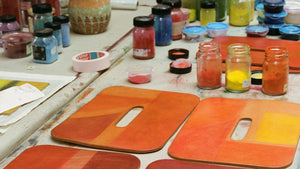
The Process: Artisan Edition by Malene Bach
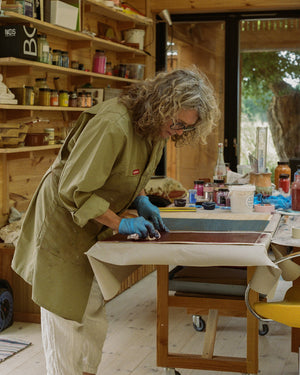
Dive into the artist's creative process, her connection with our design philosophy, and the unique aspects of the Artisan Edition collaboration. Each hand-painted and one-of-a-kind seat is a functional art piece available exclusively at framacph.com and the FRAMA Studio Store in Copenhagen.
Can you tell us about your initial inspiration for the FRAMA Artisan Edition collaboration?
The inspiration that kindled the creation of this collaboration finds its roots in the world of materials, particularly the tactile allure and the organic nature of the leather seat. With its warmth and inviting texture, leather served as the canvas for this creative endeavor.
My aspiration for this project was to weave a color palette evoking a sense of warmth and softness, just as the leather’s characteristics do. Thus, I embarked on a meticulous exploration of colors, journeying from the bright glow of yellow to the deep, contemplative richness of dark red. These colors, carefully chosen, were meant to harmonize and resonate with the leather’s inherent qualities, forging a symbiotic color composition between material and color.
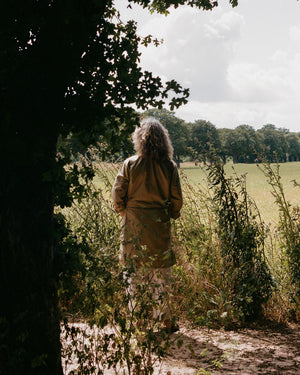
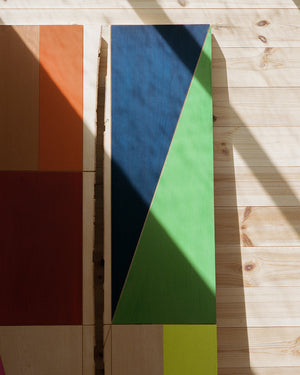
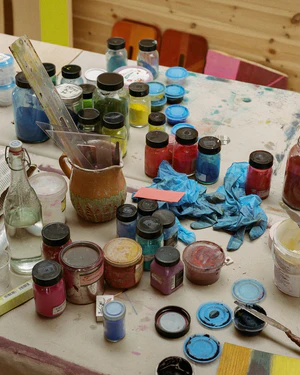
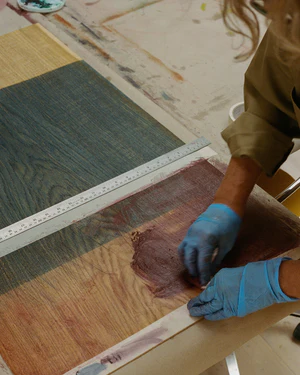
Could you describe the creative process behind designing and crafting the artisan stool seats for FRAMA? What materials and techniques did you use?
The creative process behind designing and crafting the artisan stool seats for FRAMA involved a special technique I was happy to challenge myself with. After opening the surface with a solvent, I applied pigments directly to the leather seat, followed by a treatment using bee wax oil to fix the colors and protect them from fading over time. Although new to me, this approach was embraced as an opportunity to work with organic materials. As the leather ages with use, it naturally becomes warmer and darker, while the embedded pigments remain relatively stable due to the wax application, ensuring the longevity of the vibrant colors.
How did you incorporate these principles into your seat art design?
Incorporating FRAMA's minimalist and timeless design principles into my seat art design was a deliberate process. I aimed to create pieces that exude an aged appearance, embracing a sense of patina rather than newness. Handcrafting played a significant role in achieving this effect, as my hands were intimately involved in applying the pigments to the leather and adding the protective bee wax coating. The tactile and visual connection to the handmade process is something you can both feel and see in the final product.
This project is an ongoing experiment, an open interpretation where the journey is as significant as the destination. While I've created sculptural furniture pieces for myself in the past, such as wooden tables and stools, this type of collaboration marks a new chapter. I'm excited to see how these stools will find their place in different spaces, evolving and contributing to new narratives over time.
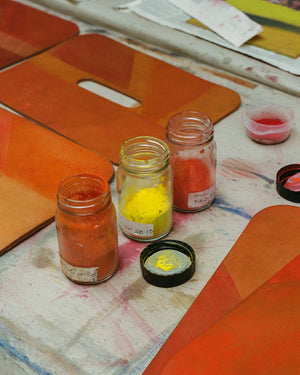
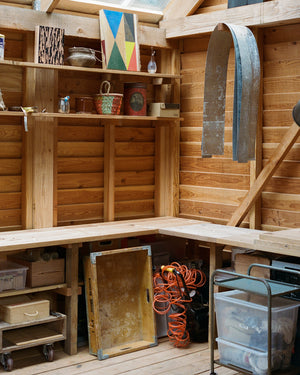
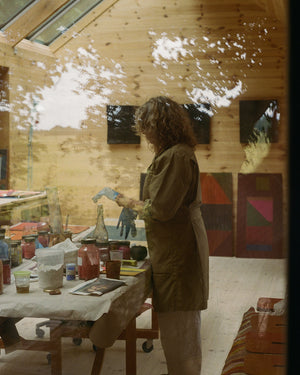
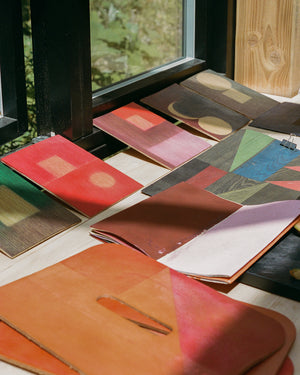
What aspects of your personal artistic style or signature can people expect to see in these collaborative stools?
You can expect to see a reflection of my artistic approach, which revolves around geometric compositions. This technique aligns seamlessly with the design because it focuses on the interplay of light and shadow. When sunlight enters through a window, it casts diagonal patterns, creating a visual dynamic of lighter and darker hues in the composition, such as varying shades of red. While I wouldn't classify it as a personal signature, this choice simply makes sense in the context of the design and its emphasis on light and shadow.
What do you hope people will feel when they encounter the pieces you collaborated on?
I hope that when people encounter and use these collaborative pieces, they will experience a profound sense of thoughtfulness. The tactile nature of the leather and the rich colors evoke a warm sensation. Through their eyes and hands, they can perceive the softness and contrast in the lines, inviting curiosity and perhaps even a desire to touch it.
In today's world dominated by machines and technology, it's crucial to reconnect with the sensory aspects of craftsmanship. Each piece is unique, imperfect, and imbued with its own history, representing a meticulous process. I want people to cherish this uniqueness and appreciate the craftsmanship that went into creating it.
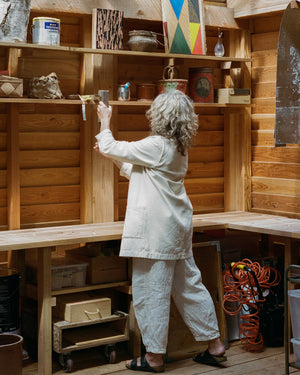
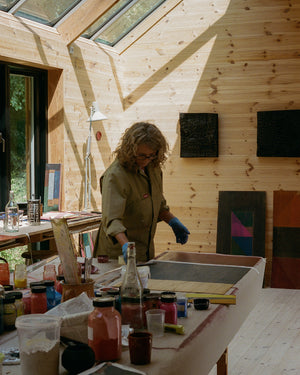
The Artitst’s Notes
The Adam Stool is a design piece, but my artistic approach adds another layer of quality to it. The intersection of art and function is what truly fascinates me. It's intriguing to take an everyday object like a chair and infuse it with artistic value, bridging the gap between these two realms. This exploration offers a sense of freedom that's distinct from traditional painting. I hope that when people have it at home, they can appreciate it not just as a functional item but as a piece of art, blurring the lines between the two.
